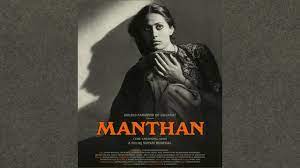Doesn’t matter whether you come from musical family or not: Bindu and Ambi Subramaniam
Bengaluru Oct 11, (PTI): It was when they realised that because music is perceived as something “that is in the genes”, something they took for granted as children is denied for many others, the trajectory of their musical journey changed, said siblings Bindu and Ambi Subramaniam.
“It doesn’t matter whether you come from a musical family or not. So far, we’ve worked with 40,000 to 50,000 kids who do not come from musical families and still are very powerful musicians. They are able to emote effectively through music or are able to discover the magic of what lies in music,” said Bindu.
Not surprisingly, the siblings had initially tuned into the musical legacy of their family which boasts of celebrated musicians for three generations now, including their father legendary violinist L Subramaniam.
“Growing up, music has always been a very integral part of our everyday experience. And so, for us a life filled with music is our definition of normal,” said Bindu.
The counterpoint, said Bindu and Ambi, came when they realised that many people do not have access to music the way they should.
But it was only when they owned up to their privilege, they were able to arrive at a point where they could use their privilege to leverage a change in narratives, said the siblings.
“So, for me and Ambi, it’s been about how we share that power of music that we’ve had access to as many children as possible without any regard for where they come from. That’s kind of at the heart of everything that we do now,” said Bindu.
Over the years, the siblings said they laid the foundation for Subramaniam Academy of Performing Arts (SAPA). The academy, which was started in 2007, today has three branches in Bengaluru and one in Mumbai.
If stepping out of comfort zones comes naturally to Bindu and Ambi Subramaniam, it could be because their family is known for pushing boundaries. Their father, the celebrated violinist, for instance, is also a medical doctor.
“When my father was growing up, if you were an Indian classical musician, you did only that. You wouldn’t even listen to other styles. But his parents were so open minded that they told him, You should go abroad, you should study Western classical violin, you should study orchestral compositions’. So, we come from a place where, yes, there is this tradition of music and it is very intense, but the world is a big place,” said Bindu.
The siblings insist that the teaching experience has been a win-win for them as well.
“We have these 14- to 15-year-old kids who are fantastic composers and they make their own music. It’s very exciting for us also to see what they are coming up with. We end up learning a lot through that. Also, a lot of times when I’m sitting with the same composition with five different students, they bring in five different flavours,” said Ambi.
Musically too, their constant striving to find that space where they could catch all things interesting, has resulted in ventures that set new tones to their repertoire, said the siblings.
“At some point, I think it was 2013, we decided, let’s do something fun together where we can just kind of make it a safe space to experiment with all the exciting musical things that we want to do. Prior to that I would try to fit in into one of her compositions or she would try to fit in to one of mine. So, it was never like collaboration where we were equally in a kind of a space where we would think we could contribute well,” said Ambi.
Their musical collaborations took the shape of Subramania first and later Thayirsadam Project.
“Subramania is a sort of contemporary world music. We don’t have a defining boundary for Subramania. It’s largely been acoustic, but it’s been a sound that has evolved,” said Bindu.
Whereas, Thayirsadam project is a bit more specific, it brings Carnatic and electronic music together, added Ambi.
Although the experiments they do bring them a lot of joy, Ambi and Bindu said no one particular generation could claim fusion as their own, as experiments with music are as old as the music itself.
“Many ragas have emerged from tribal and folk music, so a lot of this has always happened, but probably now it is happening at a much faster accelerated pace,” said Ambi.
What really changed in this generation is the focus of these “changes”, said the siblings.
“There is a focus to learn and understand the other art forms as well. It is not just, fine you do your thing. I will do my thing and we will meet at the end’ anymore. And I think this understanding and learning make collaborations more meaningful, makes music that could potentially last as pieces of art a little longer,” said Ambi.
“I think the future is where people become exposed to so many different things that they are not even so worried about the genre anymore,” added Bindu.








